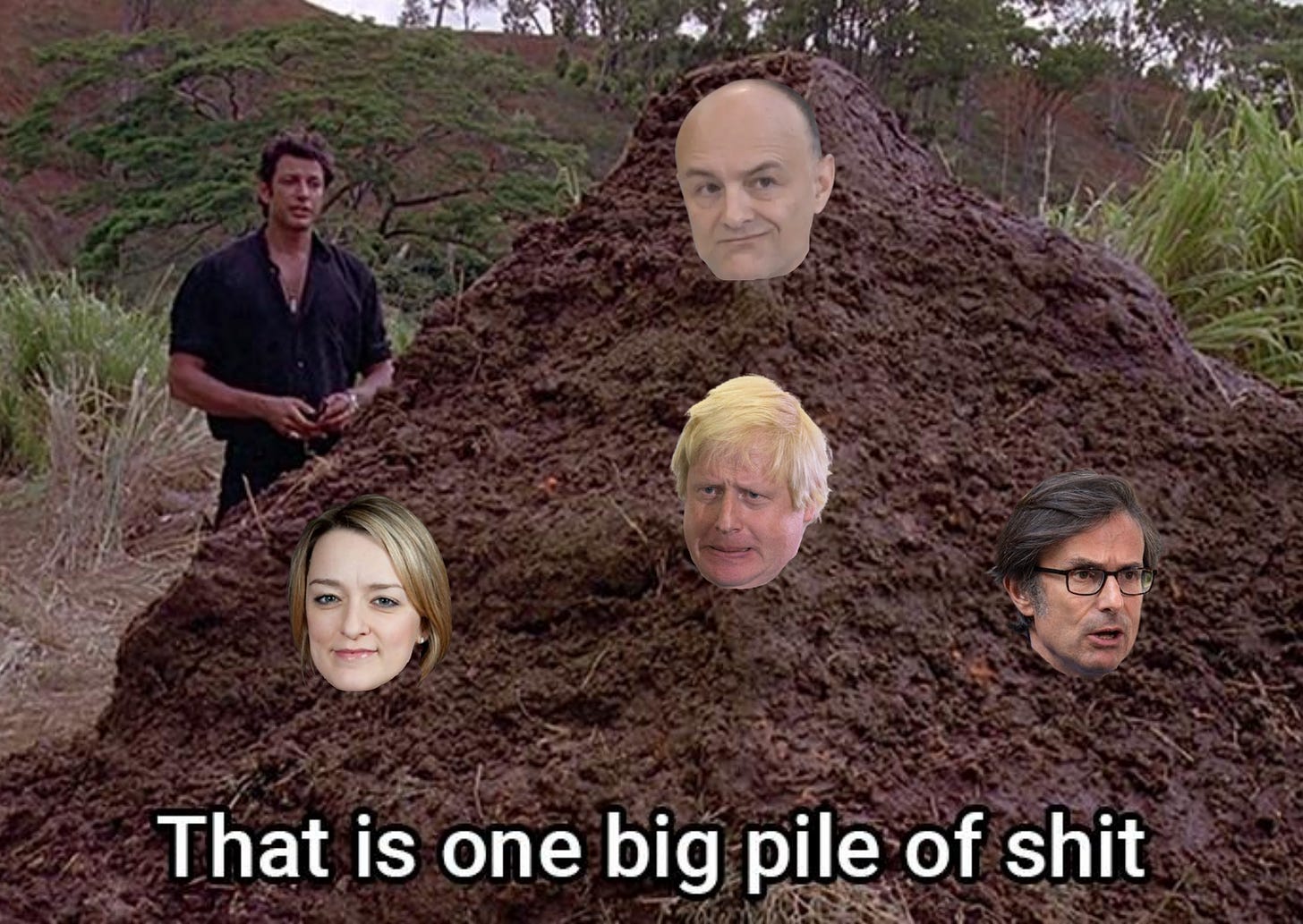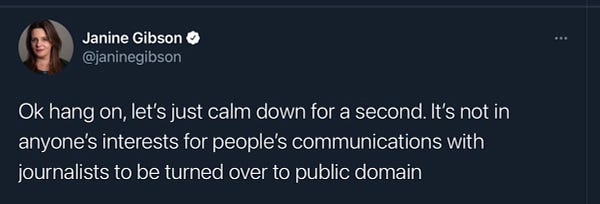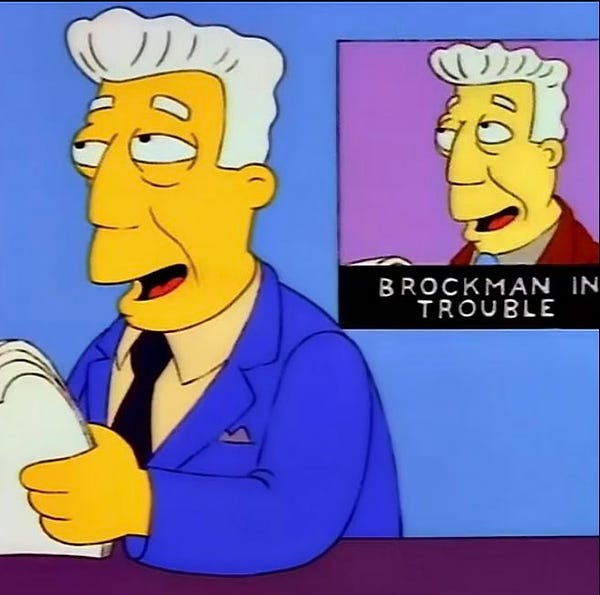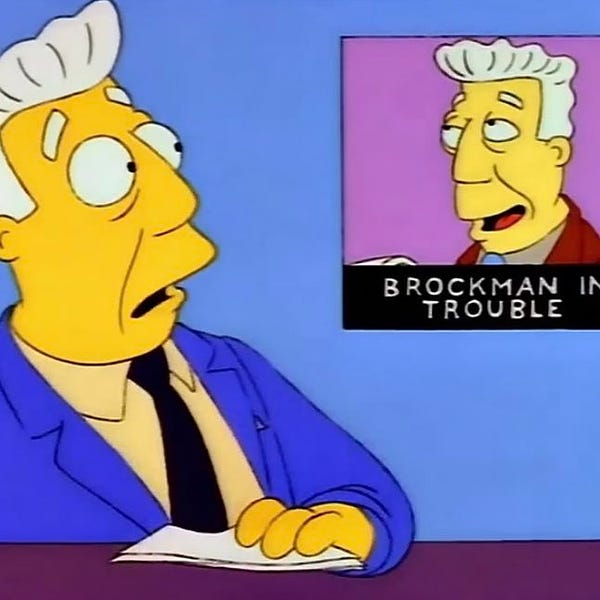Cummings to the usual conclusions: The British media won’t accept its role in the creation of 'classic' Dom
There were many striking moments in Dominic Cummings' seven hours of testimony, but there was one that BBC News won't touch...
During seven hours of ‘shock and… cor, I can’t believe he just said that!’ testimony from Dominic Cummings to Parliament’s health and science select committees, BBC News’ corporate eye barely blinked.
But when Dominic Cummings claimed that the corporation’s Political Editor Laura Kuenssberg was his main contact in the British media, viewers on BBC2 and the BBC News Channel didn’t hear her name. The presenter chose that moment to speak over the testimony…

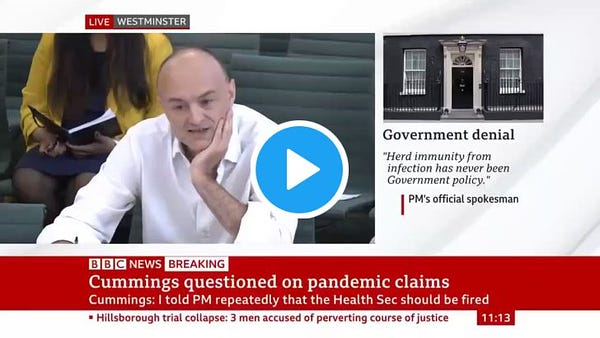
There’s every chance that it was just an unfortunate/fortunate coincidence (depending on your perspective) but it was also striking that Kuenssberg’s own live-tweeting of Cummings’ revelations came to a screeching halt the moment that her name entered the frame.
In his sustained insult bukkake1 of Boris Johnson, Cummings claimed that the Prime Minister was “about a thousand times too obsessed with the media in a way that undermines his own job.”
That was why, he said, he had ‘unauthorised’ chats with Kuenssberg. He claimed that he spent “less than one per cent” of an average 100-hour work week talking to journalists but most often that time was dedicated to speaking with the BBC political editor:
The main person… that I spoke to in the whole of 2020 was Laura Kuenssberg at the BBC — because the BBC has a special position in the country, obviously during a crisis… Because I was in the room for certain crucial things, I could give guidance to her on certain very big stories.
Cummings gave the example of a rumour in March 2020 that the government had deployed tanks on the M25 motorway to seal off London from the rest of the world. Given that tanks would be pretty hard to miss if they started rolling around one of the country’s busiest motorways, you might think that this particular ‘story’ wouldn’t have required recourse to a “senior Number 10 source”, but it seems it did. Cummings said:
Laura Kuenssberg called me and said, ‘This story is happening. Is it true?’
I said, ‘I can categorically tell you, it is definitely not true. You should definitely not report it. I absolutely 100 per cent guarantee it.
That Cummings was most frequently Kuenssberg’s “senior Number 10 source” during the crunch period of the pandemic is so far from being shocking scientists are scrambling to create new ways of measuring how bleeding obvious it was.
It took 30 years for Mark Felt to be categorically revealed as Woodward and Bernstein’s ‘Deep Throat’ informant. That Cummings was Kuenssberg’s source was so obvious at the time that stories were being published he was hardly even Shallow Throat. And the issue is not that he was a source but in how she and others in the media privy to scraps from him treated those lines like gold, rather than potential shit from a prodigious stirrer of the stuff.
Cummings’ amateur ophthalmologist’s outing to Barnard Castle obviously came up during his testimony with him offering a new spin on the tale that suggested his family’s flight to Durham had been caused by security concerns and threats that had surfaced before he caught Covid.
Others can pick the bones out of Cummings’ latest episode of Listen With Motherfucker; this newsletter is concerned with one thing and one thing only, bent coppers… I mean, self-deluded and deluding hacks.
On 22 2020 when The Mirror’s Pippa Crerar broke the story of Cummings and his interactions with the police seemingly over a breach of Covid rules — he claims they spoke to him about security — Kuenssberg steamed into her replies with a rebuttal, seriously overstepping the mark.

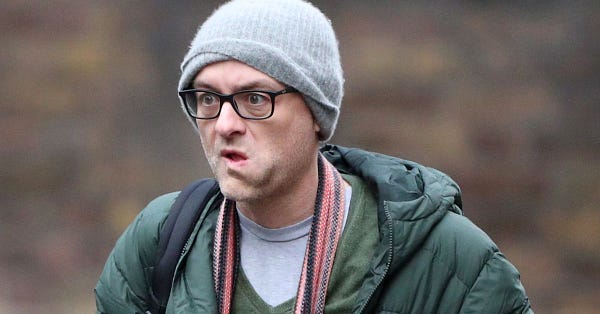

While we cannot be 100% sure that Cummings was the source here unless/until he publishes his communications with journalists — something he toyed with doing in front of the committees yesterday — if it looks like duck, quacks like a duck, and briefs its favourite tame journalist like a duck trying to justify why it flew far, far away from where it should have been, it’s probably a duck.
Even in the remote chance that the chatty twat on that day in May 2020 was not Cummings, the fact that Kuenssberg careened into Crerar’s mentions within minutes of the story dropping was a stark example of how she has and continues to handle sources.
She was far from the only one. Robert Peston’s voice could frequently be heard echoing from directly up Dominic Cummings’ arse and The Sun’s Bunterish blowhard Harry Cole also regularly trafficked tidbits from “close friends” of Cummings aka Dom in a series of fancy dress costumes of ever-increasing ridiculousness:

The self-defence mechanisms of the British media kicked in from the second Kuenssberg’s name dropped from Cummings’ mouth. The journalist Chris Stokel-Walker was quick with this spicy truth bomb:
Journalists tweeting indignantly that Dominic Cummings was a major source for Laura Kuenssberg are either hypocrites performing for numbers or aren’t very good at their job.
Here’s an alternative take: The use of anonymous briefings by British political journalists has gone far beyond what’s reasonable and helped to turn our national discourse trivial and glib, with stories often spun up from gossamer-thin gossip and perched on the word of a handful of self-serving sources.
Was it a professional necessity for Laura Kuenssberg to use Dominic Cummings, then the most senior advisor to the Prime Minister, as one of her sources? Of course. It’s straw-manning of ‘hey, let’s burn Edward Woodward in this one’ proportions to pretend that most substantive criticism of Kuenssberg’s use of Cummings as a source is about her doing it and not how she did it.

Rob Burley, formerly editor of the BBC’s live political programmes, offered a similarly disingenuous reading of the situation:
If [she] wasn’t talking regularly to Cummings while he was in Number 10 there’d be a problem. It’s literally her job to talk to and assess the veracity of such sources to keep the public informed.
Again, there’s no issue with the first half of Burley’s comment, but his point comes off the track, plunges into a ravine, and explodes in a shocking fireball from the word “assess” onwards.
Viewers and listeners — from within the media industry and outside it alike — have seen time and time again that Kuenssberg has a tendency to assess info from government sources more favourably than information from other sources, especially the Labour Party. Again, she is not an outlier among the British political media; it’s a disorder suffered by many of the most senior political hacks and Lobby limpets.
It was never and should never be the job of the BBC’s Political Editor to act as a combination of stenographer and megaphone for the Prime Minister’s chief advisor but that’s what she appeared to be time and time again. That was literally not her job, no matter how much media insiders like Burley try to gaslight us into believing we’re simply too dim to understand how politics works.
British journalists often have a condescending attitude like that to their audiences — they act as though journalism is a shadowy bunker in which only those steeped in its secret ways can see what’s actually happening rather than what it actually is — a Pompidou Centre-style arrangement with its pipework on the outside showing exactly all the shit that’s flowing through the system if you are willing — and have a strong enough stomach — to look closely.
There was a lot of jittery conversation from hacks about the prospect of Cummings cracking open Pandora's Inbox and revealing the exact content of his conversations with them and their colleagues. The Financial Times’ Assistant Editor Janine Gibson, formerly of The Guardian and latterly Editor-in-Chief of BuzzFeed, wrote in a now-deleted tweet:
… let’s just calm down for a second, it’s not in anyone’s interests for people’s communications with journalists to be turned over to [the] public domain.
To which I offer this counterpoint: It is. It is in the interest of readers, viewers, and listeners that the political journalists of the UK stop giving anonymous source terms out like sweeties.
There’s a big difference between protecting whistleblowers and vulnerable sources and the continuing system of public officials and political operatives being able to launder lines and attacks through supine correspondents.
And let’s return to one such incident where a source — which may or may not have been Dominic Cummings but probably wasn’t in this case — claimed that a Labour activist had punched a Tory advisor.
Kuenssberg and Peston — a detective series so ropey that not even ITV3 would touch it — both tweeted a claim during the December 2019 general election that an aide to Matt Hancock had been punched in the face during a hospital visit by a Labour protestor.
Peston said he had been told about the ‘incident’ by “senior Tories”. Kuenssberg said she had been told the false story by two sources. Both rushed to excitedly tweet the ‘revelation’ before a video emerged showing that no punch had occurred — the aide could clearly be seen accidentally walking into the protestor’s outstretched arm and neither party reacted with anger.


While Peston told ITV News at Ten viewers that “despite what many of us were told by the Tories, it was plainly an accident,” Kuenssberg simply deleted her original tweet, posted an apology, and did not refer to the incident at all during her report on the BBC News at Ten. It’s that omission among many others which make her ‘curious’ silence around her bit-part role in Cummings’ testimony so unsurprising to me.
Peston and Kuenssberg were played like cheap fiddles by their Tory sources in that December 2019 incident and the culture of anonymous briefings protected the whisperers from any blowback. They got a lie blasted out into the world by two senior journalists, with millions of social media followers between them and suffered no consequences for that lie. There are still people out there who sincerely believe the punch happened.
The British media, in general, has a condition where it simultaneously crows about its importance while denying that its output has any significant effect on how the public sees things or what happens within politics; it is staffed by many, many hardline observer effect denialists.
In Kuenssberg’s on-air reports yesterday, her appearance on the Newscast podcast, and her BBC News website article on Cummings’ appearance, the reference to briefing her did not appear. BBC News is kidding on to its audience that it didn’t even know Dominic Cummings, who went to a different school.
Kuenssberg’s BBC News website analysis, headlined Dominic Cummings' accusations can not easily be dismissed, easily ignored her own role in the story. She writes:
Not the prime minister, nor the health secretary, nor the government's top scientists, nor the Whitehall machine, nor even Mr Cummings himself, escaped the barbs today.
… nor the BBC’s Political Editor. Who is that again? After paragraph upon paragraph discussing Cummings’ evidence that entirely ignores any reference to the media, Kuenssberg concludes:
… whatever the true balance of Dominic Cummings' motivations, the multiple very public accusations of failure can't be dismissed out of hand.
But questions about the media’s role in allowing the government and its advisors to throw lines, claims, and counter-claims into the public domain are dismissed out of hand. The wagons are circled, the excuses and patronising explanations dusted off and deployed, and the British press barrels on.

Though Kuenssberg was named by Cummings yesterday, she’s not an outlier or uniquely to blame despite her prominent position. The foundations of British political journalism — a machine obsessed with gossip and signifiers over substance — are as rotten as the system that it observes and influences.
Hundreds of pages and hours of coverage will be dedicated to the ‘fallout’ from Cummings’ confessions today, and British journalism will pat itself on the back for picking over the facts, fictions, and fucks from his appearance. But it will be a passing storm and one in which hacks themselves huddled under their umbrellas and deny they have any role in seeding the clouds.
Cummings referenced Jeff Goldblum and Independence Day multiple times yesterday, but it was a quote from Bill Pullman’s President Thomas J. Whitmore that came to mind after spending all day thinking about the media’s role in allowing a government fighting like cats in a bag to fuck up the pandemic response and leave 130,000 people dead:
It's a fine line between standing behind a principle and hiding behind one. You can tolerate a little compromise if you're actually managing to get something accomplished.
British political hacks and British journalism more generally are hiding behind the principle of anonymous briefings, not standing behind it. And while they all claim to be getting something accomplished, many are just giving us gossip and lies marinated in the acrid piss of compromise.
Don’t look it up if this term is unfamiliar to you.


